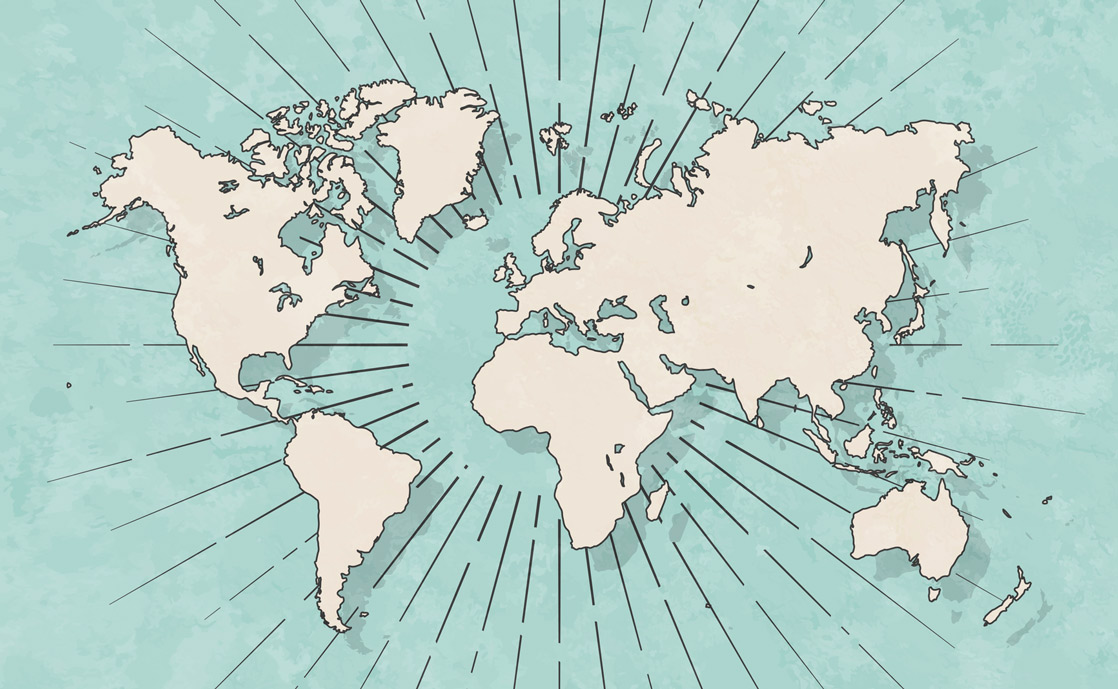In the grand tapestry of human experience, the concept of spiritual messengers emerges as an indispensable motif, weaving itself into the fabric of diverse cultures and civilizations. The Bahá’í Faith, with its profound perspective on these figures, posits that these messengers—often referred to as Manifestations of God—serve as conduits of divine wisdom and enlightenment, meant to unite humanity and foster a sense of global solidarity. As we delve into the implications of Bahá’í teachings regarding these spiritual emissaries, we uncover the intricate layers of their significance to cities and all nations.
To comprehend the role of spiritual messengers, one must first consider the universality of their mission. Each of these divine figures emerges within a particular historical context, yet their messages transcend temporal and geographic boundaries. These manifestations are the luminaries who illuminate the path for humankind, inviting us to transcend our differences and embrace a shared purpose. Although varied in their cultural manifestations—such as Jesus, Muhammad, Moses, Buddha, and more—their essential teachings resonate with a fundamental truth: the oneness of humanity and the divine. This principle underlines a striking metaphor of the world as an orchard, wherein each tree represents a different religion, bearing unique fruits, yet all nourished by the same soil of divine guidance.
This orchard metaphor elucidates the concept that while distinct religions each provide unique spiritual nourishment, they ultimately lead to the same divine source—God. To navigate this orchard, one must cultivate a profound understanding of the commonalities that underpin varied faiths. The Bahá’í teachings emphasize the necessity of searching for unity amidst diversity, urging adherents to look beyond superficial dissimilarities and engage in a broader dialogue of mutual respect and understanding.
The spiritual messengers serve as architects of this unity. Their teachings often culminate in practical guidance for building harmonious societies. The Bahá’í Faith, for instance, espouses principles such as justice, equality, and cooperation among nations, suggesting that any civilization must prioritize the collective over the individual. By striving toward the establishment of global governance—wherein the voice of every nation is heard and considered—these spiritual figures empower humanity to address complex global challenges collaboratively.
Moreover, the role of spiritual messengers extends beyond temporal leadership into the realm of ethical and moral guidance. The teachings imparted by these figures provide an ethical compass for individuals and communities alike. For instance, the emphasis on the sanctity of human life, the imperative of education, and the practice of charity encapsulate the profound regard for the well-being of every individual, reflecting the interconnectedness of all souls. Such stewardship fosters an ethos where each person recognizes their contribution to the collective welfare of society, engendering an atmosphere of compassion and altruism.
In urban settings, the influence of these spiritual messengers can be particularly transformative. Cities, often seen as melting pots of diverse cultures, epitomize both the challenges and opportunities presented by this diversity. By embodying the principles laid forth by these divine figures, urban populations can cultivate environments particularly conducive to peace and cooperation. Initiatives that promote intercultural dialogue, the establishment of community-building events, and projects aimed at alleviating poverty serve to exemplify the teachings of the Bahá’í Faith, manifesting the prophetic vision of spiritual messengers in the modern world.
Additionally, the advent of technology presents a dual-edged sword in relation to spiritual teachings. On one hand, it allows for the rapid dissemination of knowledge and fosters connections among people regardless of geographic barriers. On the other hand, the potential for dissonance and fragmentation grows without the guiding wisdom of these messengers. Herein lies the imperative for individuals and communities to remain anchored in the principles of unity and love, as espoused by the Bahá’í Faith, ensuring that technological advancements serve to uplift rather than divide.
Intriguingly, the metaphor of a garden—complementing the orchard analogy—further elucidates the essence of spiritual messengers. Just as a garden flourishes through careful tending and cultivation of its diverse plant life, so too must humanity nurture the teachings of these divine figures. This involves not only the appreciation of their individual contributions but also the active implementation of their guidance in everyday interactions and societal frameworks. Much like the harmonious juxtaposition found in a well-tended garden, the synthesis of various spiritual insights facilitates a richer understanding of the human experience.
Finally, acknowledging the relevance of these spiritual messengers in addressing contemporary global crises is vital. Climate change, socio-economic disparities, and widespread conflict necessitate a united approach rooted in the teachings of these divine figures. As the spiritual messengers have laid the groundwork for understanding and collaboration, it is incumbent upon us to heed their teachings and apply them to today’s pressing challenges. By fostering a dialogical platform for diverse cultures and religions, humanity can cultivate a spirit of solidarity, propelling collective action towards sustainable development and peace.
In conclusion, the Bahá’í teachings regarding spiritual messengers present a profound paradigm urging humanity to transcend its divisions. By viewing the world through the metaphoric lenses of an orchard and a garden, we begin to recognize the beauty inherent in diversity and the critical importance of unity. As cities and nations continue to grapple with the complexities of modernity, embracing the teachings of these spiritual figures offers not only a pathway to enlightenment but also serves as a beacon of hope in our collective journey towards a just and harmonious global society.
